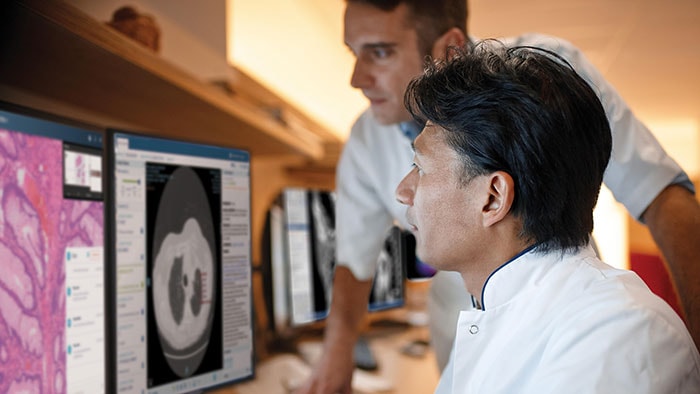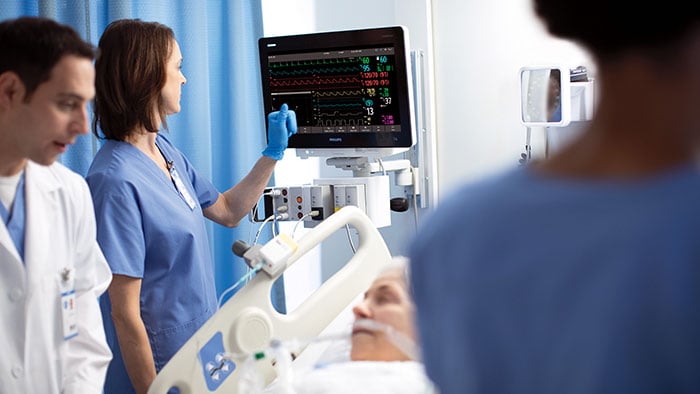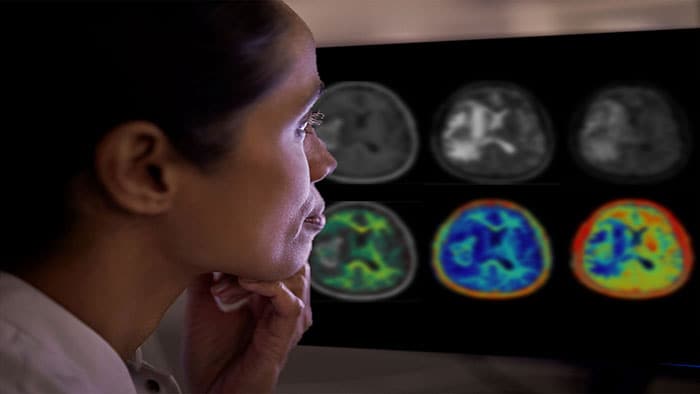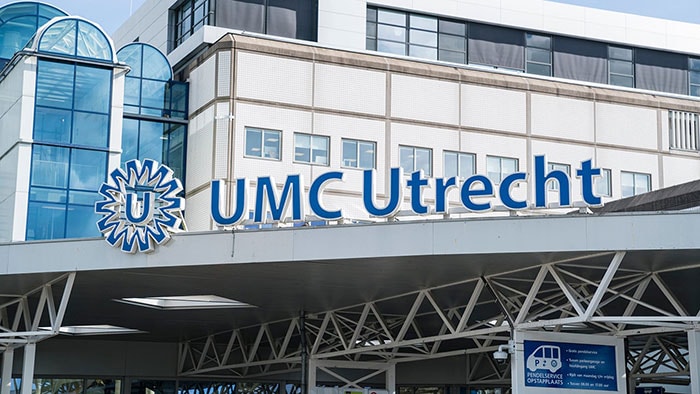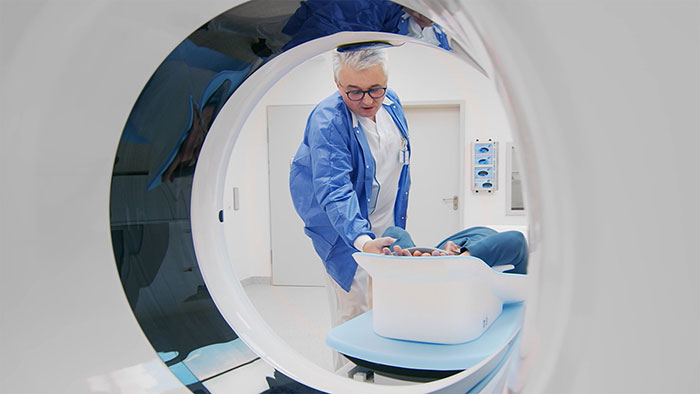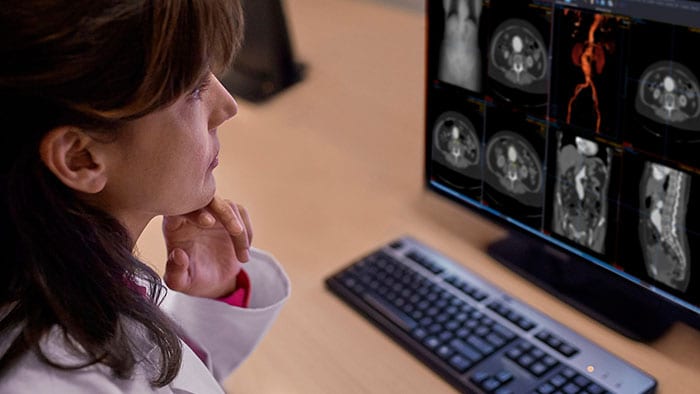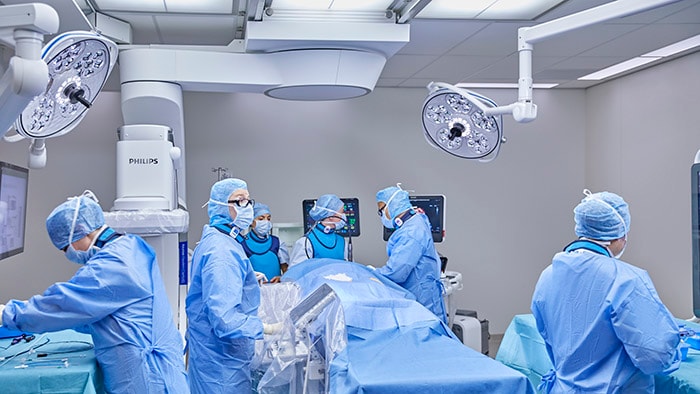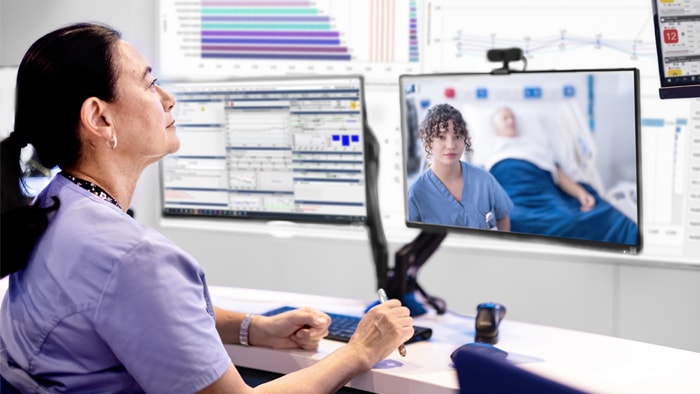Onderzoekers van Philips, TU/e , Kempenhaeghe en Universiteit Gent werken samen aan een nieuwe methode om hersenen te stimuleren met elektrodes. Doel van het onderzoek is om patiënten met epilepsie een op maat gesneden behandeling te kunnen bieden. Waar de behandeling nu nog bestaat uit breinstimulatie met elektrodes die in het hoofd worden aangebracht, hopen de onderzoekers hetzelfde resultaat te boeken met elektrodes óp het hoofd. De onderzoekers verwachten dat Philips HD EEG de oplossing biedt bij aanvallen in een specifiek deel van de hersenen, zogeheten focale aanvallen. Met 256 elektroden kan het apparaat niet alleen hersenactiviteit meten, maar ook heel gericht stroom aanbrengen. Projectleider en technisch onderzoeksleider Rob Mestrom van de TU/e: “Dit instrument biedt ons de unieke mogelijkheid om nauwkeuriger dan voorheen te zien waar precies in de hersenen een epileptische aanval plaatsvindt. Vervolgens gaan we precies dat punt stimuleren en kunnen we direct meten wat het effect is.” Het project, met de naam PerStim, is deel van het Eindhoven MedTech Innovation Center (e/MTIC), een brede onderzoekssamenwerking tussen onder meer de TU/e, Kempenhaeghe en Philips.
Philips, TU/e, Kempenhaeghe and Ghent University are researching new treatment method for epilepsy
Researchers from Philips, TU/e, Kempenhaeghe and Ghent University are working together on a new method to stimulate the brain with electrodes. The aim of the research is to offer patients with epilepsy a tailor-made treatment. Whereas the treatment currently consists of brain stimulation with electrodes applied inside the head, the researchers hope to achieve the same result with electrodes on the head. The researchers expect Philips HD EEG to provide the solution for attacks in a specific part of the brain, so-called focal attacks. With 256 electrodes, the device can not only measure brain activity, but also apply very targeted electrical stimulation. Project and technical research leader Rob Mestrom of the TU/e: "This instrument offers us the unique opportunity to see more accurately than before exactly where in the brain an epileptic seizure is taking place. Then we will stimulate exactly that point and we can immediately measure the effect.” The project, under the name PerStim, is part of the Eindhoven MedTech Innovation Center (e/MTIC), a broad research collaboration between the Philips, TU/e and Kempenhaeghe, among others.




